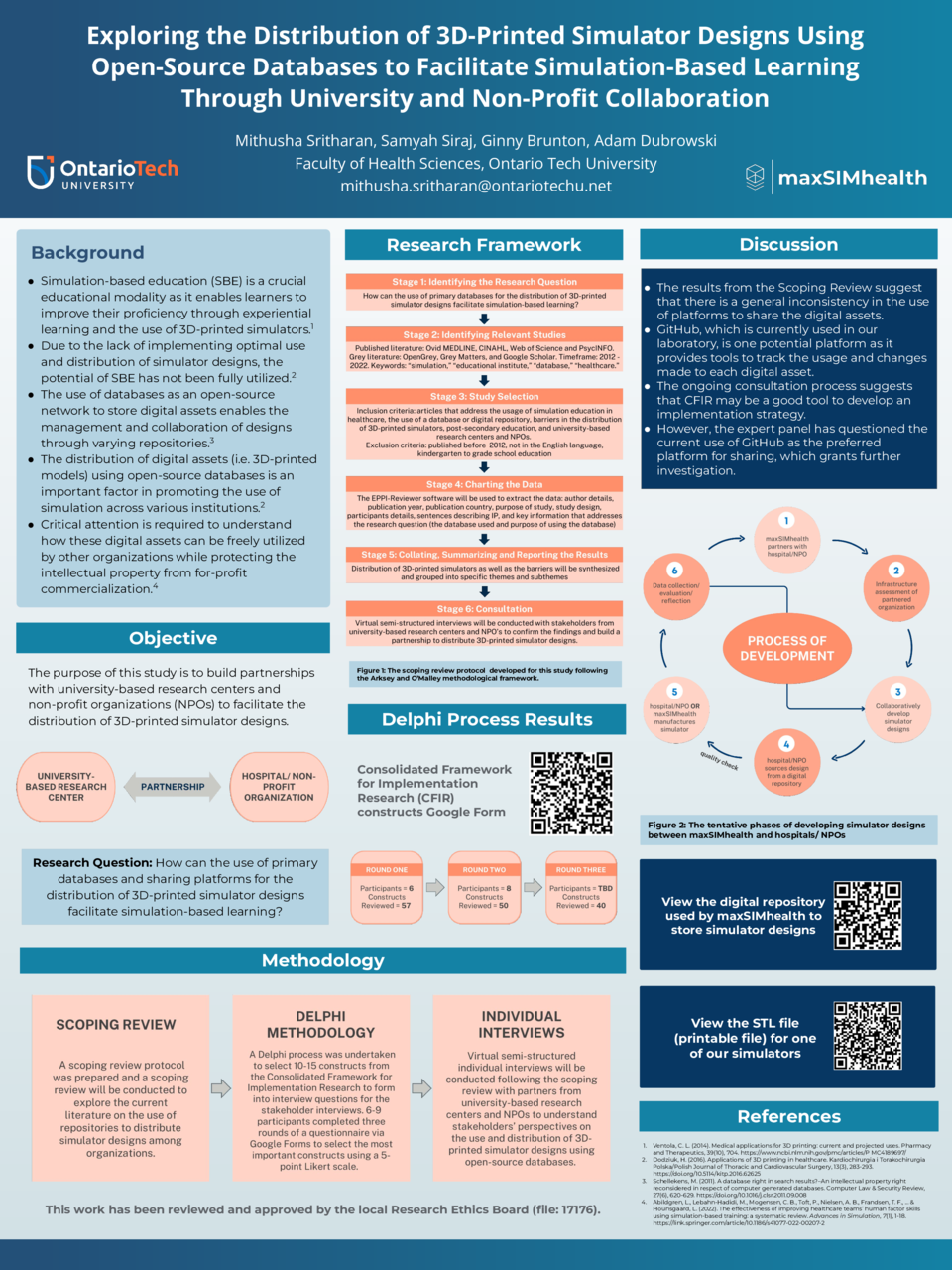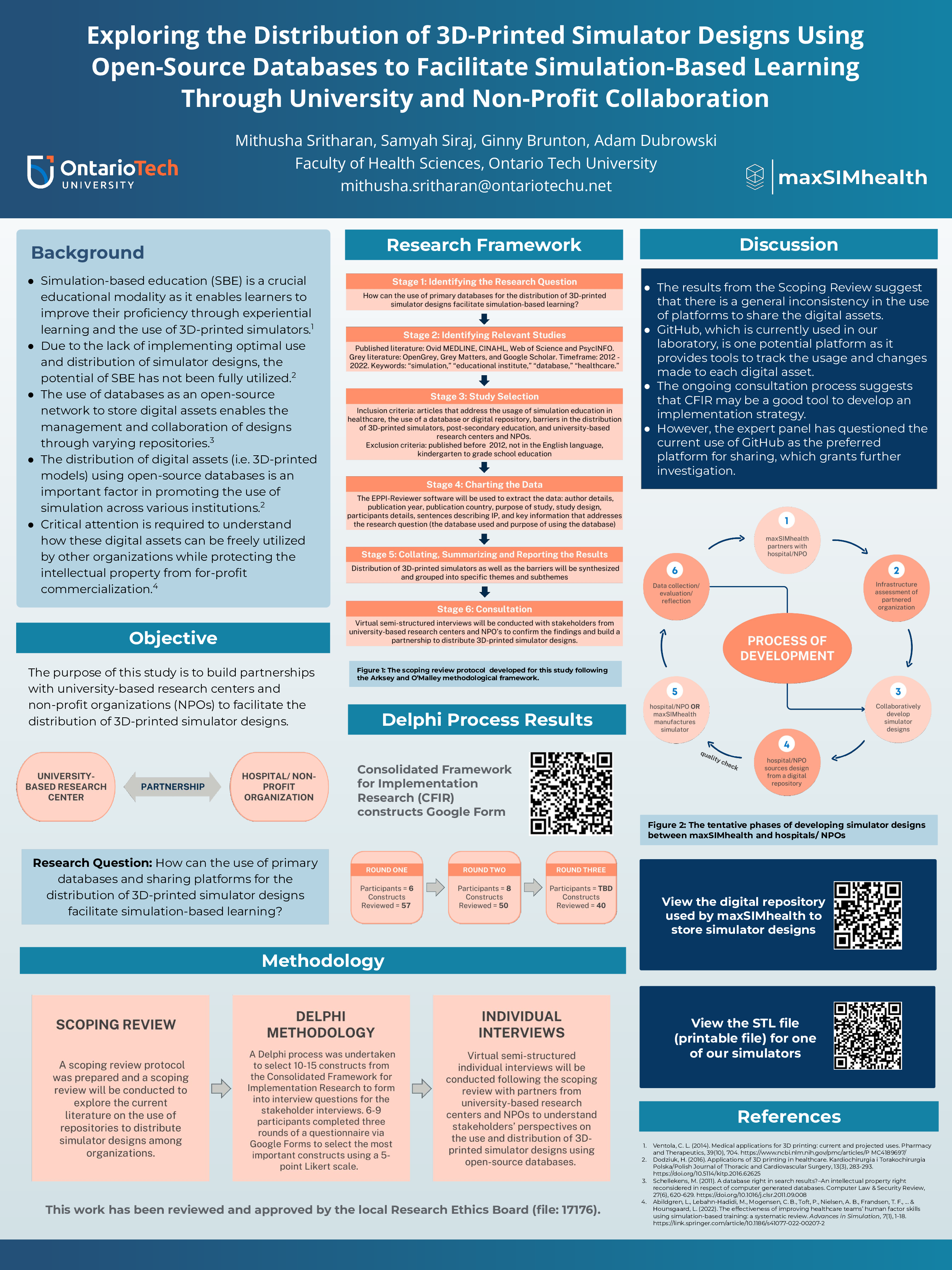Abstract
Background: Simulation-based education is emerging as a crucial educational tool to obtain meaningful solutions to healthcare provider training. The use of databases as an open-source network to store data enables the distribution of simulator designs through repositories globally. While databases that are readily accessible to the public are beneficial in developing and improving designs, limitations are present in facilitating the use of designs when used by university-based research centers and non-profit organizations (NPOs).
Objective: Through the lens of implementation science frameworks, the objective is to explore how the use of databases can overcome limitations and barriers surrounding the distribution of three-dimensionally (3D)-printed simulator designs.
Methods: A scoping review protocol will be prepared to conduct a scoping review which will explore the current research on the use of repositories to distribute simulator designs among organizations. Virtual semi-structured interviews will be conducted with partners from university-based research centers and NPOs to understand stakeholders’ perspectives on the use and distribution of 3D-printed simulator designs using open-source databases. A Delphi process will be undertaken to select 10-15 constructs from the Consolidated Framework for Implementation Research to form into interview questions for the stakeholder interviews. 6-9 participants will complete a questionnaire via Google Forms to select the most important constructs using a 5-point Likert scale.
Discussion and future directions: Results from the stakeholder interviews will identify how to share simulator designs between partners to address the limitations of organizations that do not have the infrastructure, resources, human capacity, or cost to formulate simulator designs. The goal of this research is to form partnerships between NPOs and university-based research centers to share repositories of designs housed on GitHub. The effective distribution of 3D-printed simulator designs can improve healthcare provider training by sharing resources through university-based research centers and NPO collaborations.






